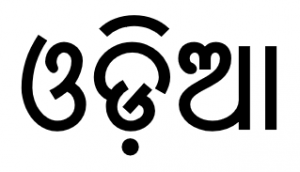Language/Odia/Grammar/How-to-Use-Be
Hi Odia learners! 😊
In this lesson, we will learn about the verb "be" in Odia. This is a very important verb in any language as it helps to describe people, places, things, and ideas. We will also look at some cultural information related to the usage of this verb in Odia language. By the end of the lesson, you will have a good understanding of how to use "be" in Odia. So, let's get started!
After mastering this lesson, these related pages might interest you: Plurals & Negation.
What is "Be" verb?[edit | edit source]
The verb "be" is an important and irregular verb in English and Odia language. It is typically used to join a subject and predicate noun or predicate adjective. It also used to make questions and negative statements.
In Odia, "be" is translated as "ହୋଇଥିବେ" (hoithibe). It is used as an auxiliary verb and the forms of "be" in English, like am, is, are, was, were, will be, etc., are not used.
Here are some examples of "be" verb in Odia:
| Odia | Pronunciation | English |
|---|---|---|
| ସେ ରେଲମା ବନ୍ଦ ଆଛନ୍ତି। | Se relama banda achanti. | The train is closed. |
| ଇଣ୍ଟରନ୍ୟୁଶନାଲ ମାର୍କେଟ୍ ଲଟରୀ ଆରମ୍ଭ ହେଉଛି। | International market lottery arambha heuchi. | The international market lottery has started. |
| ତୁଙ୍ଗ ପାହାଡ଼ରେ ପର୍ବତ ସାରସ୍ରୂପ ଆଛି। | Tunga paharare parbata sarasrupa achi. | The mountain on Tunga summit is beautiful. |
How to use "Be" verb?[edit | edit source]
The usage of "be" verb in Odia is similar to English. It is used to describe several aspects like:
1. Identifying or introducing[edit | edit source]
"Be" verb in Odia is used to identify or introduce something or someone. For example,
| Odia | Pronunciation | English |
|---|---|---|
| ଚକ୍ରଡେହରୁ ଆଶ୍ରୁ ବହିଛି। | Chakradeharu asru bahichhi. | Tears are flowing from the eyes. |
| ହେ, ରାସଟୀ ସେକ୍ସୁଆଲିଟୀ ରୁନରୁ ସ୍ୱାର୍ଥ କରୁଛନ୍ତି। | He, rasati sexualitira runaru swarth karuchanti. | Yes, the music industry is self-centered from sexuality. |
2. Describing state[edit | edit source]
"Be" verb in Odia is used to describe the state of something or someone. For example,
| Odia | Pronunciation | English |
|---|---|---|
| ରାଜ୍ୟରେ ଅନେକ ଭାଷା ବୋଲା ହୋଇଥିବେ। | Rajyare aneka bhasha bora hoithibe. | Several languages are spoken in the state. |
| ସେ ଥରେ ସୁଖି ଆସିବା ପାଇଁ ଅନେକ ସ୍ଥଳରେ ହେଉଥିବେ। | Se thare sukhia asiba paini aneka sthalaru heuthibe. | For him to feel happy, there will be several places. |
3. Talking about professions[edit | edit source]
"Be" verb in Odia is used to describe people's professions. For example,
| Odia | Pronunciation | English |
|---|---|---|
| ଏଇ ପେଟ୍ରୋଲ ପମ୍ପ୍ରେ ଅସୁବିଧା ହେଉଥିବେ। | Ei petrol pumpare asubidha heuthibe. | There will be an inconvenience at this petrol pump. |
| ସେ ପ୍ରକଳ୍ପ ସଂଚାଳନ କରିଥିବା ବ୍ୟକ୍ତି। | Se prakalpa sanchalana kari thiba byakti. | The person who will manage the project. |
4. Talking about relationships[edit | edit source]
"Be" verb in Odia is used to describe relationships between people. For example,
| Odia | Pronunciation | English |
|---|---|---|
| ସେହି ମହାଶ୍ୱେତା ହେଉଥିବେ। | Sehi mahasweta heuthibe. | He will be Mahasweta. |
| ତୁଙ୍ଗର ପରିବରର ସବୁ ସଦସ୍ୟଙ୍କ ନିମ୍ନ ଅଧିକାର ହୋଇଥିବେ। | Tungara paribarara sabu sadasyanka nimna adhikara hoithibe. | All members of the Tunga family will have the same rights. |
Dialogues[edit | edit source]
Here are some dialogues to help you understand the usage of "be" verb:
Dialogue 1[edit | edit source]
- Person 1: ତୁମେ ଘରେ କିପରି ଲେଟେଇ ଠିକ ଆଛିଜି? (Tume ghare kipari letei thika achhiji?) (Are you sleeping well at home?)
- Person 2: ହ୍ୟା, ଏମିତି ଠିକ ଆଛି। (Hyā, ēmiti thika achi.) (Yes, I am sleeping well.)
Dialogue 2[edit | edit source]
- Person 1: ରାଜଧାନୀରେ କେଉଁ ରେସ୍ତାରାଞ୍ଜ ଆଛନ୍ତି? (Rajadhānire keuni restārāñja achhanti?) (Is there any restaurant in the capital?)
- Person 2: ହେ, ସେମିତି ମିଳିଯିବ। (He, Śēmiti miliyiba.) (Yes, you'll find plenty of them.)
Conclusion[edit | edit source]
"Be" verb in Odia is an important and versatile verb that has many use cases. By knowing how to use this verb, you can describe things and people, introduce people, and talk about relationships and professions. Now you should be able to understand and use Odia language more accurately and precisely. Keep practicing and learning.
To improve your Odia Grammar, you can also use the Polyglot Club website. Find native speakers and ask them any questions!
➡ If you have any questions, please ask them in the comments section below.
➡ Feel free to edit this wiki page if you think it can be improved. 😎
Congratulations on finishing this lesson! Explore these related pages to keep learning: Give your Opinion & Conditional Mood.
Other Lessons[edit | edit source]
Sources[edit | edit source]
- Odia grammar - Wikipedia
- Odia grammar for OTET and OSST - Apps on Google Play
- Odia language - Wikipedia

